About the Authors
Jerusha McCormack and John Blair were born and educated in the United States, then with PhDs in hand (from Brandeis and Brown Universities), they moved independently to Western Europe. As academics, each taught for thirty years in English Departments at University College, Dublin, and the University of Geneva, respectively. As immigrants to Europe they gained first-hand experience of cross-cultural issues. As teachers of American literature and culture, they learned how to make that experience meaningful for international audiences.
Over the last twelve years, teaching frequently as Foreign Experts in China, they designedinitially for Beijing Foreign Studies Universitya course called Western Civilization with Chinese Comparisons. Their sourcebook under that title published by Fudan University Press is now in its fourth edition. Since 2003 the course based on this book has been required for graduate students in the School of English and International Studies at BFSU. It is being adopted in universities from Beijing to Chengdu to Hohhot. Published in the United States under the title Comparing Civilizations: China and the West , this sourcebook serves as a platform for this, their latest bookas well as for the comparative civilizations course they have been invited to teach in the autumn semester of 2015 as distinguished visitors at the Institute of World Literature at Peking University.
Thinking through China
Published by Rowman & Littlefield
A wholly owned subsidiary of The Rowman & Littlefield Publishing Group, Inc.
4501 Forbes Boulevard, Suite 200, Lanham, Maryland 20706
www.rowman.com
Unit A, Whitacre Mews, 26-34 Stannary Street, London SE11 4AB, United Kingdom
Copyright 2016 by Rowman & Littlefield
All rights reserved. No part of this book may be reproduced in any form or by any electronic or mechanical means, including information storage and retrieval systems, without written permission from the publisher, except by a reviewer who may quote passages in a review.
British Library Cataloguing in Publication Information Available
Library of Congress Cataloging-in-Publication Data
McCormack, Jerusha.
Thinking through China / Jerusha McCormack and John G. Blair.
pages cm
Includes bibliographical references and index.
ISBN 978-1-4422-4791-8 (cloth : alk. paper) ISBN 978-1-4422-4792-5 (pbk. : alk. paper) ISBN 978-1-4422-4793-2 (electronic) 1. ChinaCivilization. 2. ChinaIntellectual life. I. Blair, John G. II. Title.
DS721.M44 2015
951dc23
2015010140
 The paper used in this publication meets the minimum requirements of American National Standard for Information SciencesPermanence of Paper for Printed Library Materials, ANSI/NISO Z39.48-1992.
The paper used in this publication meets the minimum requirements of American National Standard for Information SciencesPermanence of Paper for Printed Library Materials, ANSI/NISO Z39.48-1992.
Printed in the United States of America
This book is dedicated to our students, past, present, and to come.
We see the world not as it is but as we are.
The Talmud
The Greek: What is the Truth?
The Chinese: Where is the Way?
Angus Graham
There should be no premature closing of our account with reality.
William James
Introduction
Entering a Chinese World
IMAGINE
Imagine you are entering a place that strikes you as entirely horizontal. Although you see the sky, sky here means simply the heavens. Here there is no heaven where earths highest reality residesno God, no choirs of angels, and no eternal souls. Nor do any ideal forms or first principles lurk in this beyond, informing all that is on the earth below. Here you have entered a City of Mana place without a City of God in either thought or imagination. In this place, the values of the people reside in their relations with others. For this reason, they invest enormous energy not in an imagined afterlife or in referring to an invisible realm of higher principles but in creating and sustaining human relations within their families and networks of friends and colleagues. Convinced that tomorrow is uncertain, they concentrate on the present, while hoping and working for a better future on this earth. While we in the West may believe in unchanging realities, in this world people expect unrelenting change. Therefore, they pay a great deal of attention to practical matters, giving little weight to large systematic principles. Decisions are made according to the degree of trust in those around them, not in regard to abstract rules. The people in this place do not often ask why. Their urgency, in this transient world, is to know howas in how to cope with the shifting world about them.
If you think this is an impoverished world, you are wrong. Although only imagined, that place might be taken as a rough outline of what is, in fact, the oldest continuous civilization in the world and thus among the richest and most complex cultures in existence. It may be taken to represent the world of China, both of yesterday and today.
INTERPRETING CHINA TO THE WEST
Of course, the imagined world described above is a Westerners idea of China. often find the categories that matter in the Chinese world to be disturbingly permeable. Distinctions that are routinely made in the Westsuch as those between self and others, body and spirit, or this world and the nexttend in China to merge and overlap in confusing ways. For, in this Chinese world, bodies can think; self and others are imbricated in a complex nexus; large impersonal forces govern the way things happen; and ghosts of ancestors or immortals may move in and out of vaguely defined realms, neither fully alive nor quite deadin a Western sense of these words.
Still, this portrayal of an imagined, largely horizontal world is less hyperbolic than that routinely offered by Western books about Chinaif only because most such books about China decipher it through Western mindsets. They ask Western questions and respond with Western answers, typically finding China lacking in one or another attribute. They trust to Western methods of analysis and rely on Western constructions such as fact to describe a world in which the facts are often factitious. What they are likely to miss is that Western categoriesespecially the big words with capitals such as God, Truth, Freedom, Rights, or Justicedo not help a Westerner to understand how Chinese look at the world. We know that the Chinese experience the world differently because their categories are different; they see the world differently because they approach it with very different presumptions. What we are tracking here are precisely those differences.
Accordingly, this book proposes ten key Chinese categories central to the way Chinese people understand their world. In explaining the meaningand useof these key words and the way they relate to each other, this book seeks to account for that invisible web that the French call a cultures mentality. We do so comparatively, noting how, despite their divergent trajectories, there are occasional and startling convergences in the way both civilizations see the world. Finally, we deploy this Chinese lexicon to respond to four persistent Western questions about China, enabling a response to these questions, for once, in Chinese terms.
Perhaps not surprisingly, that response changes the perspective on these questions, sometimes in quite drastic ways. Why are such fundamental issues not taken into account by Western books on China? Perhaps this is so because the way people think about the world is itself largely invisiblenot only to outsiders but also often to Chinese and Westerners as well. In fact, most humans never feel the need to think much about the civilization they inhabit. Like fish, they do not know water; they simply live in it. The Chinese have their own way of saying this: a famous poem about a sacred mountain concludes, When on the slopes of Lushan / One cannot see Lushan. To view the mountain, one has to get off the mountain. In other words, it may take an actual encounter with a distant way of life, such as that of China, for people to begin thinking about their own unspoken presumptions about the world in which they live and move and have their being.


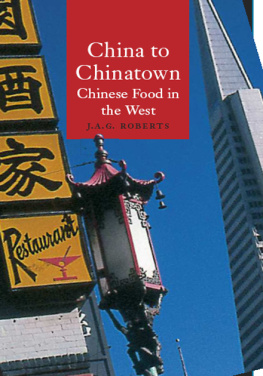
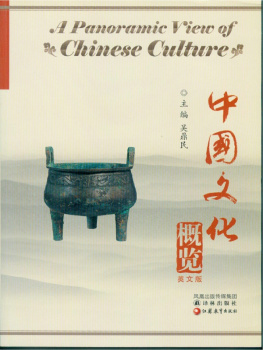
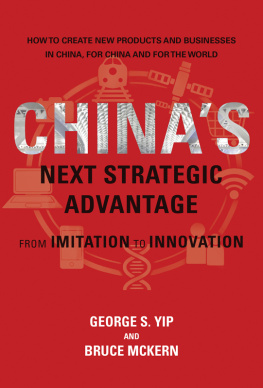
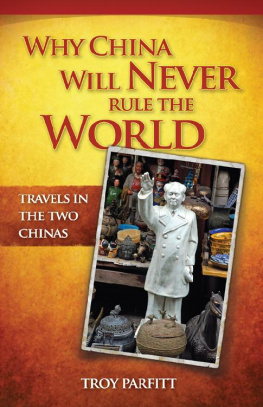
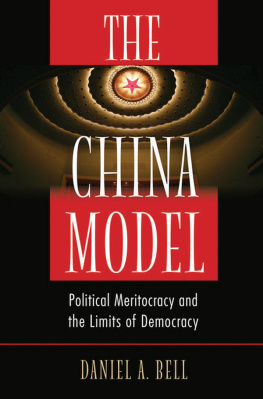

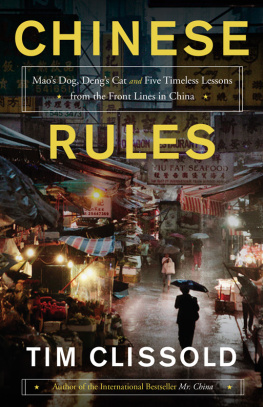
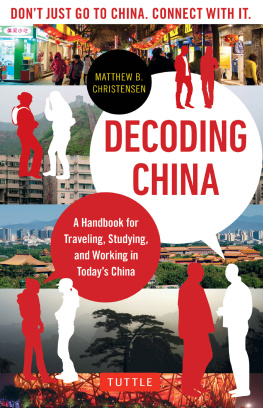

 The paper used in this publication meets the minimum requirements of American National Standard for Information SciencesPermanence of Paper for Printed Library Materials, ANSI/NISO Z39.48-1992.
The paper used in this publication meets the minimum requirements of American National Standard for Information SciencesPermanence of Paper for Printed Library Materials, ANSI/NISO Z39.48-1992.